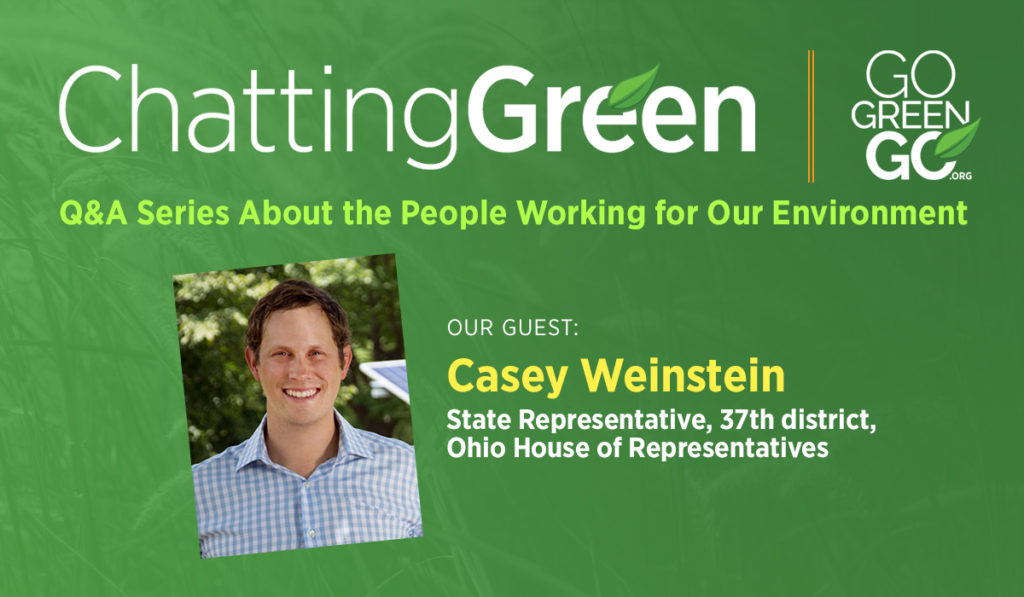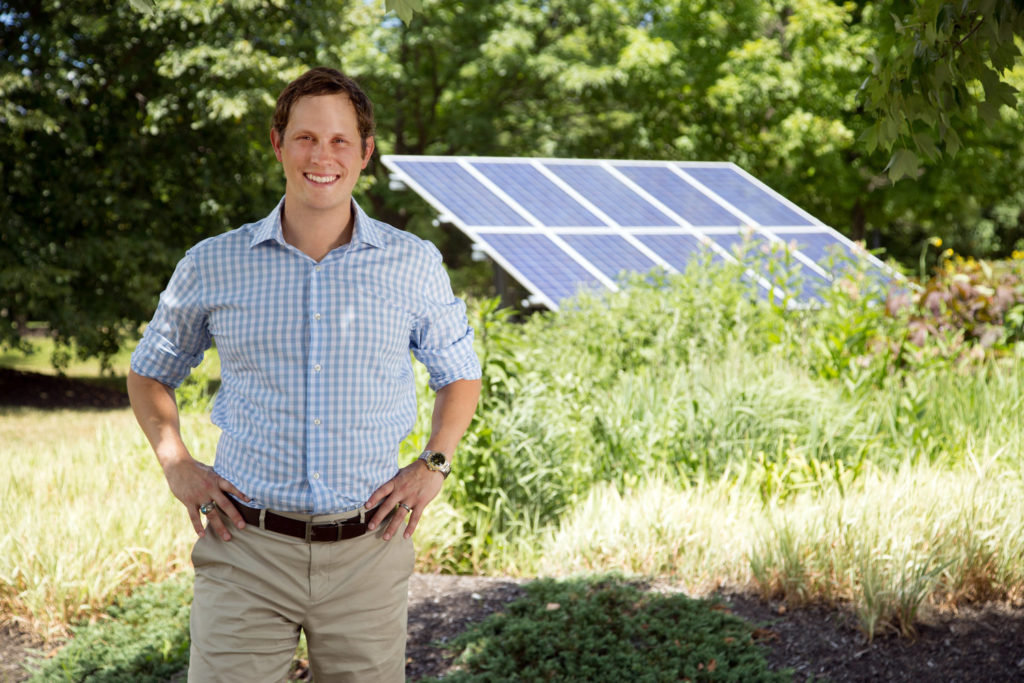Chatting Green with Ohio State House Representative Casey Weinstein
- Chatting Green
-
Feb 18
- Share post

This week we chat with Ohio House District 37 Representative, Casey Weinstein about his work on the Energy & Natural Resources Committee, and his thoughts on Ohio’s environmental future.
…
As the representative for District 37 in the Ohio House of Representatives, you were recently appointed to the Energy & Natural Resources committee. Tell us a little about this committee, what environmental projects you will be working on, and what your hopes and goals are for it.
The Energy & Natural Resources Committee is focused on the usage and regulation of various energy resources, from oil and gas to wind and solar. The Committee also considers issues like watershed maintenance and air quality. Last general assembly, much of our work revolved around the now-infamous HB 6; first its passage, and then its repeal. This year, I want to focus our efforts on crafting a new energy vision for Ohio—one that looks forward instead of back—like the one I laid out last year. I hope we will be able to do this in a bipartisan and constructive manner, especially after last year’s acrimonious back-and-forth on HB 6.
What is Ohio’s biggest environmental need right now, and how do we address it?
We have to be prepared for the future, and right now, we aren’t. A recent report from Morgan Stanley estimated that coal-fired generation will be eliminated from the grid by 2033. As of 2018, a little less than half of Ohio’s net annual electricity generation still came from coal. We have to take action to facilitate a smooth transition to alternative energy resources and tear down the existing red tape that prevents us from doing so before it is too late.
We have to take action to facilitate a smooth transition to alternative energy resources and tear down the existing red tape that prevents us from doing so before it is too late.

What environmental issue means the most to you personally and why?
The environmental issue that means the most to me is ensuring Ohioans have clean air. To me, it is a foundational right. Unfortunately, the Cleveland-Akron area routinely ranks in the top 10 for worst air pollution in the United States. This dirty air leads to many asthma attacks, which can prove severe for both children and senior citizens alike. My daughter, Nora, was diagnosed with asthma as an infant, and my wife and I spent many a restless night watching over her to make sure she could breathe. All because our air is so polluted. No parent should have to endure that.
What was your inspiration to get involved with environmental issues?
In Judaism, we have the concept called Tikkun Olam. Translated from Hebrew, it means “repairing the world.” I first learned about Tikkun Olam while in elementary school and took a very literal interpretation at that young age. It’s what lead me to start a Save the Earth Club when I was just 7-years old, and I’ve been hooked on environmentalism ever since.
How can concerned individuals make the most positive impact with regard to the environment and the climate crisis?
We can all do our part as individuals to try and reduce waste and save energy, from turning the lights off when we leave a room to cutting down on single-use plastics. But in truth, it’s not enough. Concerned Americans need to use their voice to contact their elected officials and demand more of them when it comes to protecting our environment and combatting climate change. Politicians need to know these aren’t issues they can ignore and have to be held accountable for the actions they take.
